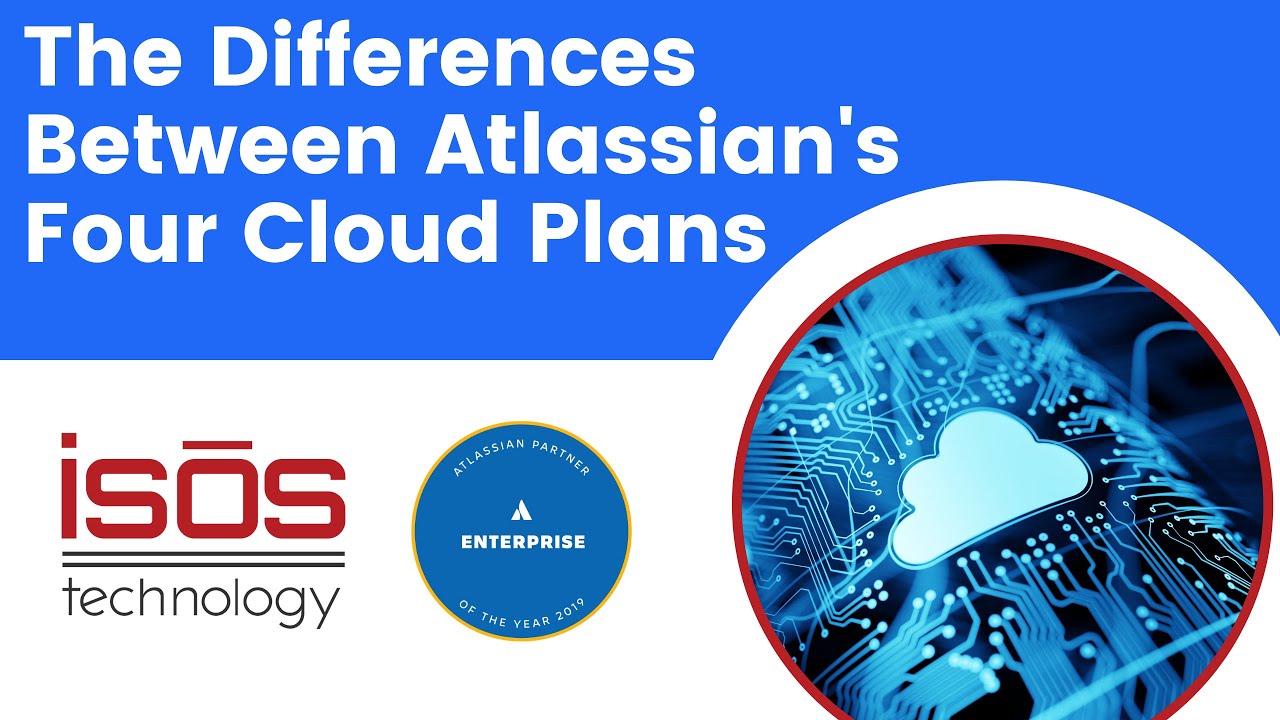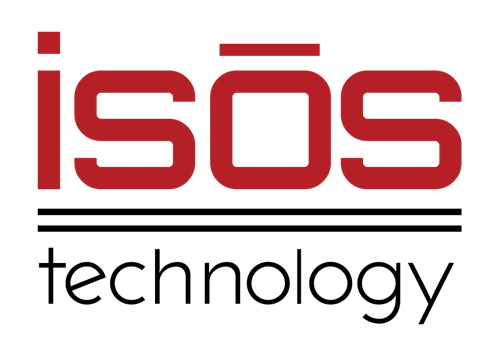 More than 90% of new Atlassian customers choose the Cloud deployment option, so they can get started faster, increase productivity, streamline administration, and scale more efficiently. And while more than 80% of Fortune 500 companies use Atlassian Cloud, it’s not just for businesses operating at scale. Atlassian has a Cloud offering for teams of all sizes, from less than ten, to tens of thousands.
More than 90% of new Atlassian customers choose the Cloud deployment option, so they can get started faster, increase productivity, streamline administration, and scale more efficiently. And while more than 80% of Fortune 500 companies use Atlassian Cloud, it’s not just for businesses operating at scale. Atlassian has a Cloud offering for teams of all sizes, from less than ten, to tens of thousands.
In this video and blog post, two of our Isos Technology subject matter experts, Rodney West, Senior Atlassian Consultant, and Chrystal Wyse, Atlassian Managed Services Lead, break down the differences between each of the four plans: Cloud Free, Standard, Premium, and Enterprise.
Atlassian Cloud Free
Cloud Free is for very small organizations or teams, or for larger organizations or teams that want to try out Atlassian tools without a commitment. The free plan supports up to 10 users in Jira Software and Confluence and up to three agents in Jira Service Management (JSM). Cloud Free comes with 2GB of file storage and support is available through the Atlassian Community.
“With the Cloud Free version, you can test Atlassian products without the same level of commitment or cost that comes with one of the other tiers. You’ll get less support and storage, but it does give that intro into Jira or Confluence Cloud.”
~Rodney West, Functional Lead, Isos Technology
Cloud Standard
Cloud Standard is for small- to medium-sized organizations or teams. It supports up to 10,000 users in Jira Software and Confluence and 5,000 agents in JSM, although some organizations might outgrow functionality before reaching that user limit. Cloud Standard comes with 250GB of file storage and support is available from 9:00 a.m. to 5:00 p.m. in the organization’s time zone.
“Cloud Standard is for companies that are past the experimentation phase and have made the decision to use the tools across their organizations. It can support 10,000 users, but with 250GB of storage, companies may hit the storage limit before they hit the user limit.”
~Rodney West, Functional Lead, Isos Technology
Cloud Premium
Cloud Premium is for larger organizations or teams, and it supports up to 20,000 users in Jira Software and Confluence and 5,000 agents in JSM. Cloud Premium comes with unlimited file storage and 24/7 support and one-hour response time for critical issues. Cloud Premium also includes a 99.99% uptime service level agreement. Other key differentiators at this level include Advanced Roadmaps for Jira, release tracks, and a sandbox.
“Cloud Premium is for companies who have made the decision that the Atlassian tools are more than just necessary—they’re mission-critical organizational tools. It's for companies that need more features, more storage, and more support.”
~Rodney West, Functional Lead, Isos Technology
Cloud Enterprise
Cloud Enterprise is for the largest organizations or teams, and it currently supports up to 20,000 users in a single instance of Jira Software and Confluence and 5,000 agents in a single instance of JSM, although because this level supports functionality that enables admins and users to work across multiple instances, the actual number of users is almost unlimited. Cloud Enterprise comes with unlimited file storage, unlimited support, and a 30-minute response time for critical issues. Cloud Enterprise also includes a 99.95% uptime service level agreement that is financially backed. Other key differentiators at this level include Atlassian Access, unlimited instances with centralized user billing, and enterprise-level scalability, security, and admin control.
“Cloud Enterprise is for companies that have a very large user base, a large issue count, and might even have federated use cases—smaller subgroups with the company that need their own instances, but also need to work across instances. But the real key differentiator for Enterprise Cloud, is the 30-minute response time for critical issues.”
~Rodney West, Functional Lead, Isos Technology
Sign up to receive more great content
Learn more about Atlassian and how Isos can help by signing up to receive our latest blogs, eBooks, whitepapers and more.












